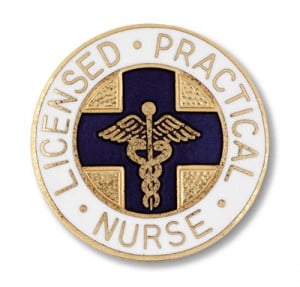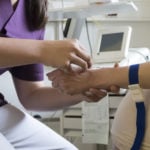
8 Roles of the LPN

LPN's were originally educated and trained to work as bedside nurses in hospitals. As a practical nurse today the scope of practice is wider than in the past. Learn about working as an LPN. Hospitals, nursing homes, rehabilitation centers, physicians’ offices, schools, clinics (dialysis, wound, etc.), hospice/home care agencies, psychiatric centers, and more all utilize LPN's. Practical nurses are now noticed for their flexibility and adaptability. In many states LPN's are licensed to administer medications, care for patients who are ventilator dependent, and even start intravenous (IV) fluids.
Find LPN / LVN Jobs.
With the wide scope of practice practical nurses have come many responsibilities, duties, and tasks. Practical nurses have many different roles to fill. While there is some overlap in roles and responsibilities, each role is a distinct entity.
Clinician
The role of clinician consists of tasks which most people consider “nursing care.” LPNs have been called the eyes and ears for Registered Nurses and physicians. Practical nurses often have more hands-on time caring for patients than RN’s or doctors. As a diligent nurse, ongoing and accurate assessment is vital. In addition to monitoring and assessing patients, medication is administered and dressings are changed. Many LPNs are in charge nurse positions, many others assist patients with personal care. Being a clinician involves the technical tasks of nursing.
Manager
As a practical nurse you will be involved in ensuring patient care plans are being followed. Many LPN's are involved in creating patient care plans and evaluating their effectiveness. Managing education for the patient and their family is always a good idea. LPN's must not only manage patient care but often coworkers as well. Many work as charge nurses or team leaders. LPN's are often given the responsibility to supervise nursing assistants.
Advocate
An advocate is someone who supports and supplies information to their patient. Advocacy often involves standing up in support of a patient and their rights. This is especially true when patient are not able to protect their own rights. Care about your patients and do your best to improve their situation every day.
 Educator
Educator
Every nurse knows the value of proper patient education. Care plans are often written by RNs and carried out primarily through LPN's. In care plans are topics which require patient education. These can range from wound care to patient safety to medication teaching. It is important to evaluate which learning style(s) your patients prefer. Encourage patients to ask questions. Read more about LPN's in teaching roles.
Counselor
When filling the role of counselor LPN's can help patients and families explore ideas and feelings towards healthcare and illness. Some patients have a difficult time accepting a disease or its treatment options. This is common in settings such as hospice or long-term care. It is the role of the LPN to assist patients with transitions and ensure they understand their options.
Consultant
Consulting is communicating; as a practical nurse you consult with RN supervisors regarding patient care and assessments. In some settings LPN's communicate directly to physicians. Communicating information to the proper people assists in increasing the effectiveness of care plans. When gathering and communicating information be sure to give a holistic view of the patient.
Researcher
LPN's function as a researcher in a support capacity. If a problem in a care plan is identified or there is a patient that needs evaluation the LPN is a position to see these things first. When a problem is identified a solution must be found. Research by nurses should follow the evidence-based practice. This is accomplished by identifying a standard of practice and finding the best treatment option for the patient.
Collaborator
As practical nurses we are only one part of a patient care team. Other important members include RN's, CNA's, physicians, physical/occupational/speech therapists, dietitians, volunteers, and more. With such a large team, every member has their own scope of practice. Each of the team members is responsible for ensuring certain tasks are completed as well as solving problems within there are area of expertise. Collaborating in healthcare means sharing information and solving problems as a team. The focus should be the patient and ensuring the highest quality care possible for each individual.

Dahlkemper, Tamara. Anderson's Nursing Leadership, Management, And Professional Practice For The LPN/LVN in Nursing School and Beyond. 5th ed. Philadelphia: F.A. Davis Company, 2013. 56-61. eBook.
RELATED LPN ROLES CONTENT:
Related Articles
Featured Article





